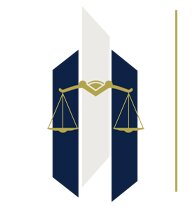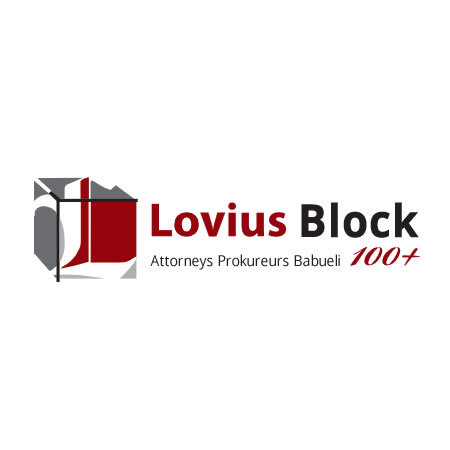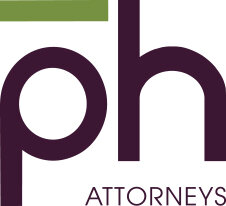Best Collaborative Law Lawyers in Bloemfontein
Share your needs with us, get contacted by law firms.
Free. Takes 2 min.
Free Guide to Hiring a Family Lawyer
List of the best lawyers in Bloemfontein, South Africa
About Collaborative Law in Bloemfontein, South Africa
Collaborative Law is an alternative legal process designed to help parties resolve disputes respectfully without resorting to traditional court litigation. In Bloemfontein, South Africa, Collaborative Law is most commonly used in family law matters, such as divorce, child custody, and property division. This approach encourages open communication and cooperation between the parties, each represented by their own trained collaborative lawyer, with the shared aim of reaching a mutually beneficial agreement. The process is confidential, voluntary, and focuses on problem-solving rather than adversarial confrontation.
Why You May Need a Lawyer
There are several situations where seeking legal advice from a collaborative lawyer in Bloemfontein may be necessary:
- Divorce or separation proceedings where both parties want to avoid court battles
- Child custody and maintenance disputes requiring a cooperative resolution
- Division of assets and financial negotiations within a family context
- Post-divorce modifications (e.g., changing support arrangements)
- Family business disputes where preservation of relationships is important
- Wills and succession planning involving multiple family members
- Disputes between parents regarding parental responsibilities and rights
- Any situation where maintaining dignity, privacy, and constructive dialogue is a priority
A collaborative lawyer will guide you through the process, ensure your rights and interests are protected, and help facilitate a fair and sustainable agreement.
Local Laws Overview
Collaborative Law in Bloemfontein operates within the framework of South African family law, governed primarily by the Divorce Act 70 of 1979, the Children’s Act 38 of 2005, and the Maintenance Act 99 of 1998. The process respects all statutory requirements but enables parties to take control of the outcome. Key features of Collaborative Law in the local context include:
- Participation Agreements: All parties and their legal representatives sign a contract agreeing to resolve issues outside of court.
- Transparency: All relevant information must be disclosed voluntarily by the parties.
- Team Approach: Professionals such as accountants, child specialists, and mental health practitioners may be involved if needed.
- No Court Threat: If the collaborative process fails, the lawyers involved may not represent the parties in subsequent litigation, fostering a commitment to resolution.
- Compliance: Final agreements reached must comply with South African law and can be made orders of the court for enforceability.
While Collaborative Law is not explicitly legislated, it is well regarded within the South African legal community as a legitimate, effective alternative to litigation, particularly in family law matters.
Frequently Asked Questions
What is Collaborative Law?
Collaborative Law is a legal process where parties, with their lawyers, work together voluntarily and confidentially to resolve disputes without going to court.
How is Collaborative Law different from mediation or litigation?
Unlike litigation, Collaborative Law is non-adversarial. Unlike mediation, both parties have their own lawyers actively participating in negotiations. The process aims for a cooperative, rather than competitive, solution.
What types of cases are suitable for Collaborative Law?
Most family law matters-including divorce, child custody, maintenance, property division, and post-divorce modifications-are suitable for the collaborative process.
How do I begin the Collaborative Law process in Bloemfontein?
Both parties must agree to participate. Each should then retain a lawyer trained in Collaborative Law. The process formally begins when a participation agreement is signed.
What role do collaborative lawyers play?
Collaborative lawyers guide and advise their clients, facilitate constructive negotiations, and help ensure agreements meet legal standards.
Is the outcome legally binding?
Yes. The final agreement reached can be made an order of the court, making it legally binding and enforceable under South African law.
What happens if the collaborative process fails?
If the process breaks down and litigation becomes necessary, the collaborative lawyers must withdraw, and new legal representation will be required for court proceedings.
What are the advantages of Collaborative Law?
Benefits include privacy, often lower costs, preservation of relationships, reduced emotional conflict, and a solution tailored to the family’s needs.
Are all lawyers in Bloemfontein trained in Collaborative Law?
Not all lawyers are trained in this process. It is important to choose an attorney who has specific experience and training in Collaborative Law procedures.
Is Collaborative Law confidential?
Yes. The entire process is confidential, and information disclosed during sessions cannot be used as evidence in court if the process fails.
Additional Resources
If you need more information or assistance, the following resources and organizations may be useful:
- The Law Society of South Africa - provides lists of practicing attorneys and information on Collaborative Law.
- The South African Association of Collaborative Professionals (SAACP) - promotes awareness and offers a directory of certified practitioners.
- Family and Divorce Courts in Bloemfontein - where agreements can be made into court orders.
- Bloemfontein Legal Aid Clinics - offer basic legal guidance for those who qualify.
- The Office of the Family Advocate - assists in matters involving children’s interests and can offer guidance for family law collaborations.
Next Steps
If you are considering Collaborative Law to resolve a family or related dispute in Bloemfontein, here’s how to proceed:
- Discuss with the other party if they are willing to participate in the process.
- Research and select a lawyer with Collaborative Law experience in Bloemfontein.
- Schedule an initial consultation to discuss your options, the process, and likely outcomes.
- Sign a participation agreement, and begin collaborative sessions with your legal teams and, if needed, neutral professionals.
- Once an agreement is reached, have your lawyer submit it to the appropriate court to be made an order of court, ensuring enforceability.
Taking these steps with the assistance of a trained collaborative lawyer can help you reach a fair and sustainable resolution while preserving important relationships.
Lawzana helps you find the best lawyers and law firms in Bloemfontein through a curated and pre-screened list of qualified legal professionals. Our platform offers rankings and detailed profiles of attorneys and law firms, allowing you to compare based on practice areas, including Collaborative Law, experience, and client feedback.
Each profile includes a description of the firm's areas of practice, client reviews, team members and partners, year of establishment, spoken languages, office locations, contact information, social media presence, and any published articles or resources. Most firms on our platform speak English and are experienced in both local and international legal matters.
Get a quote from top-rated law firms in Bloemfontein, South Africa — quickly, securely, and without unnecessary hassle.
Disclaimer:
The information provided on this page is for general informational purposes only and does not constitute legal advice. While we strive to ensure the accuracy and relevance of the content, legal information may change over time, and interpretations of the law can vary. You should always consult with a qualified legal professional for advice specific to your situation.
We disclaim all liability for actions taken or not taken based on the content of this page. If you believe any information is incorrect or outdated, please contact us, and we will review and update it where appropriate.















